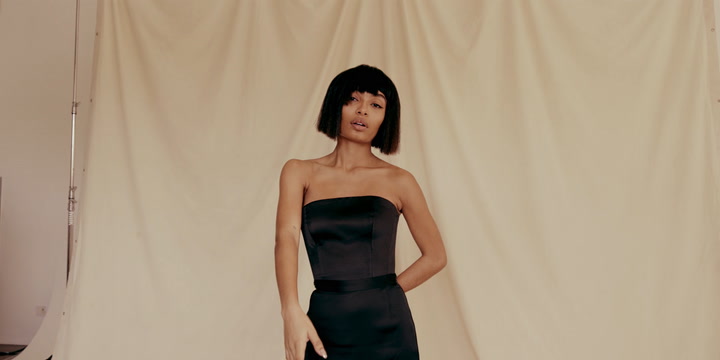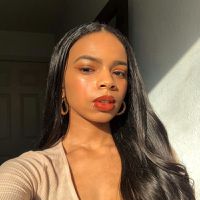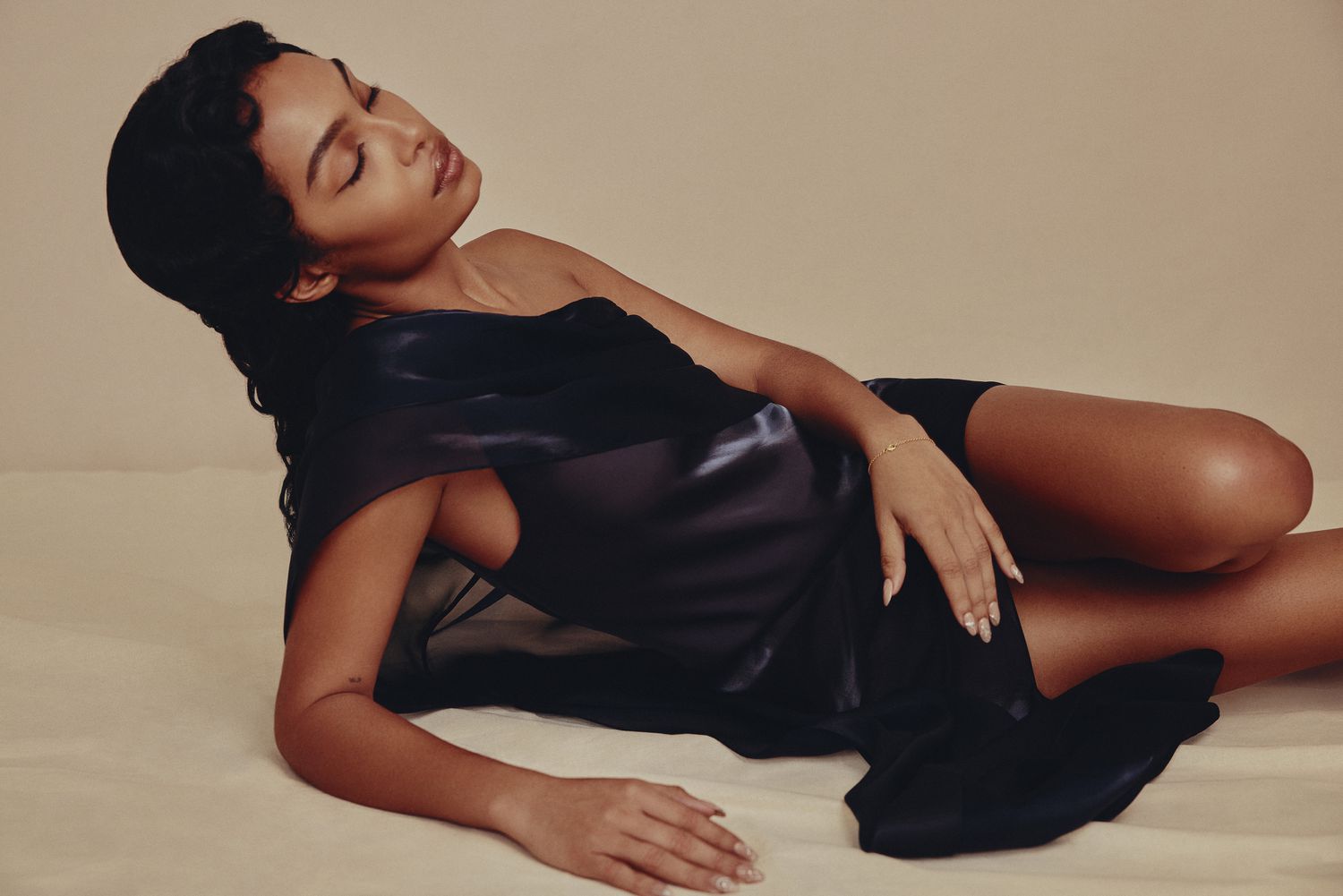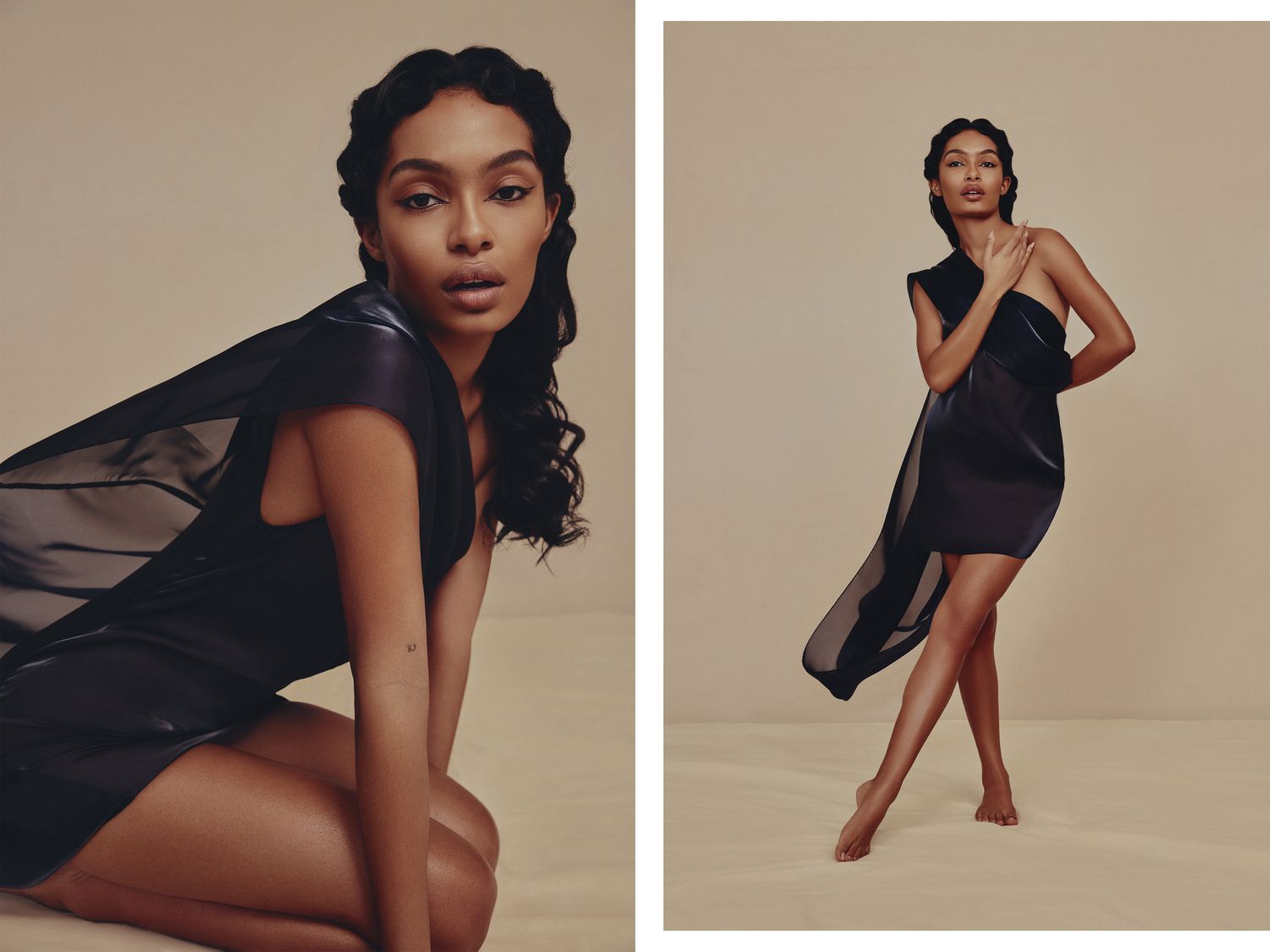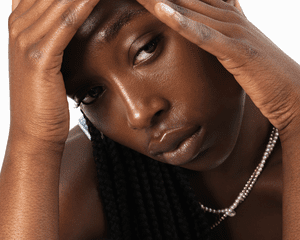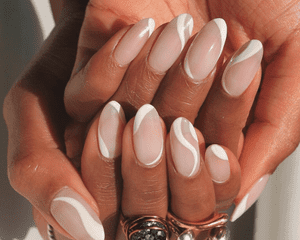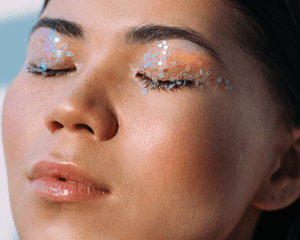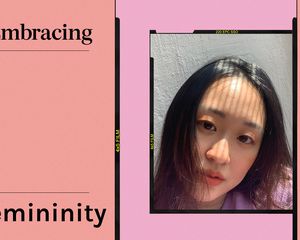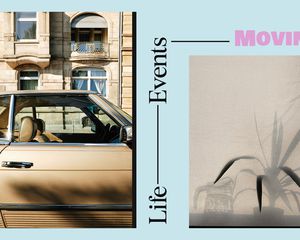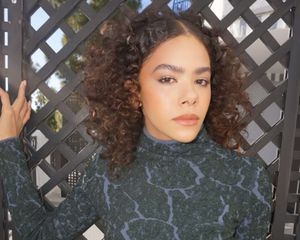Yara Shahidi is a newly minted 23-year-old. When the multihyphenate dials into our call, it’s 10 days before her birthday. The Aquarius's celebration plans are surprisingly lowkey for someone who is one of the most successful 20-somethings in Hollywood. "I think I'm going to keep things pretty small," she says. "I'll do something with my family and a couple of friends and I may take a quick trip somewhere. I love to travel, and going somewhere with a self-made itinerary is nice. The most important thing, though, is that I am OOO for my birthday."
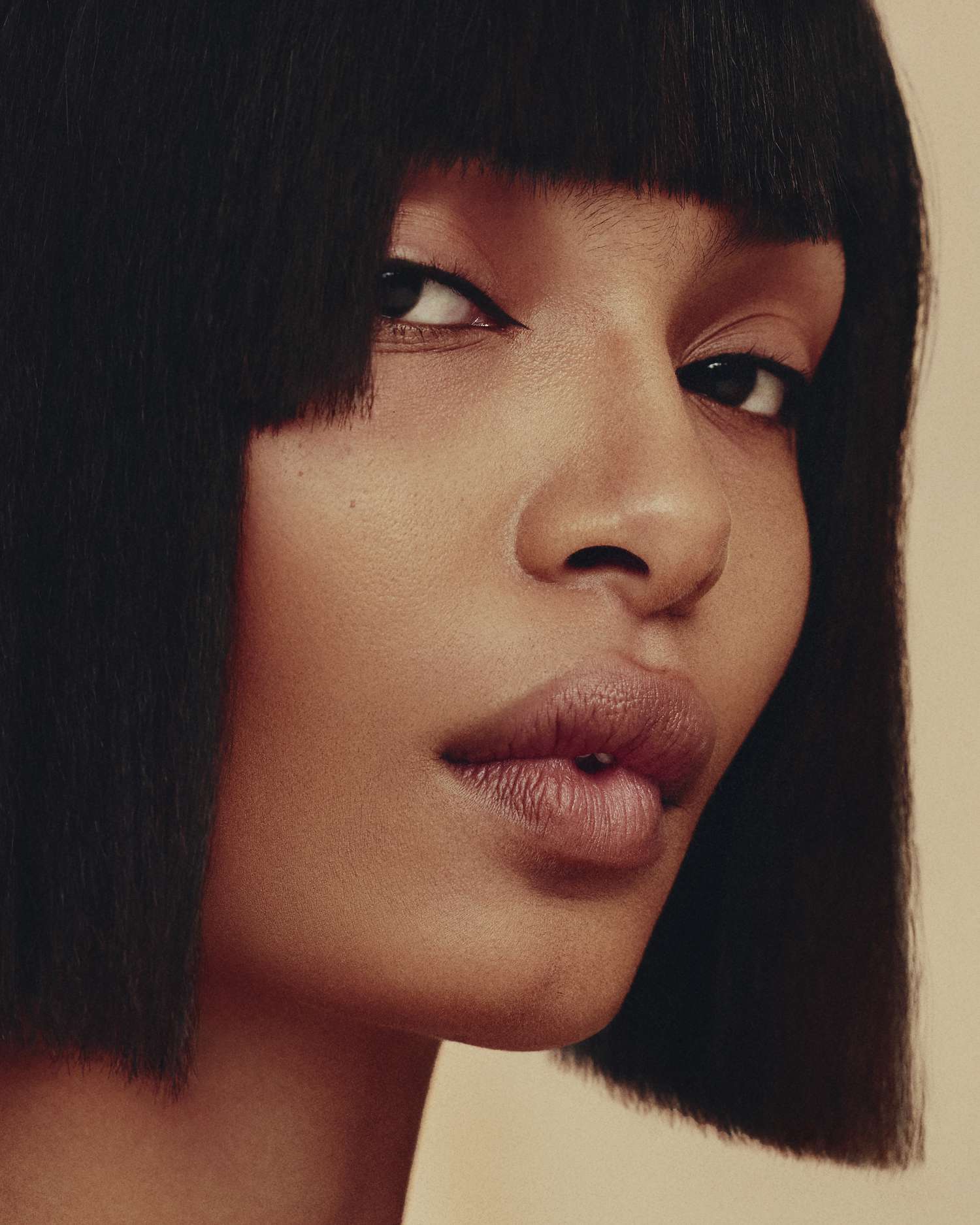
Makeup: Dior Beauty
Ultimately, Shahidi enjoyed a birthday getaway at the picturesque Cheval Blanc in St. Barths. Being able to take a momentary step back from her day-to-day as an actress and producer is something Shahidi cherishes, but she admits it's something she's still learning how to do as an in-demand young adult. After all, she's been in front of the camera since babyhood, booking her first commercial gig as an infant while living in Minnesota. She continued to rack up credits in advertisements and television shows during elementary school. And she made her film debut at just nine years old, starring in Paramount Pictures' Imagine That alongside Eddie Murphy.
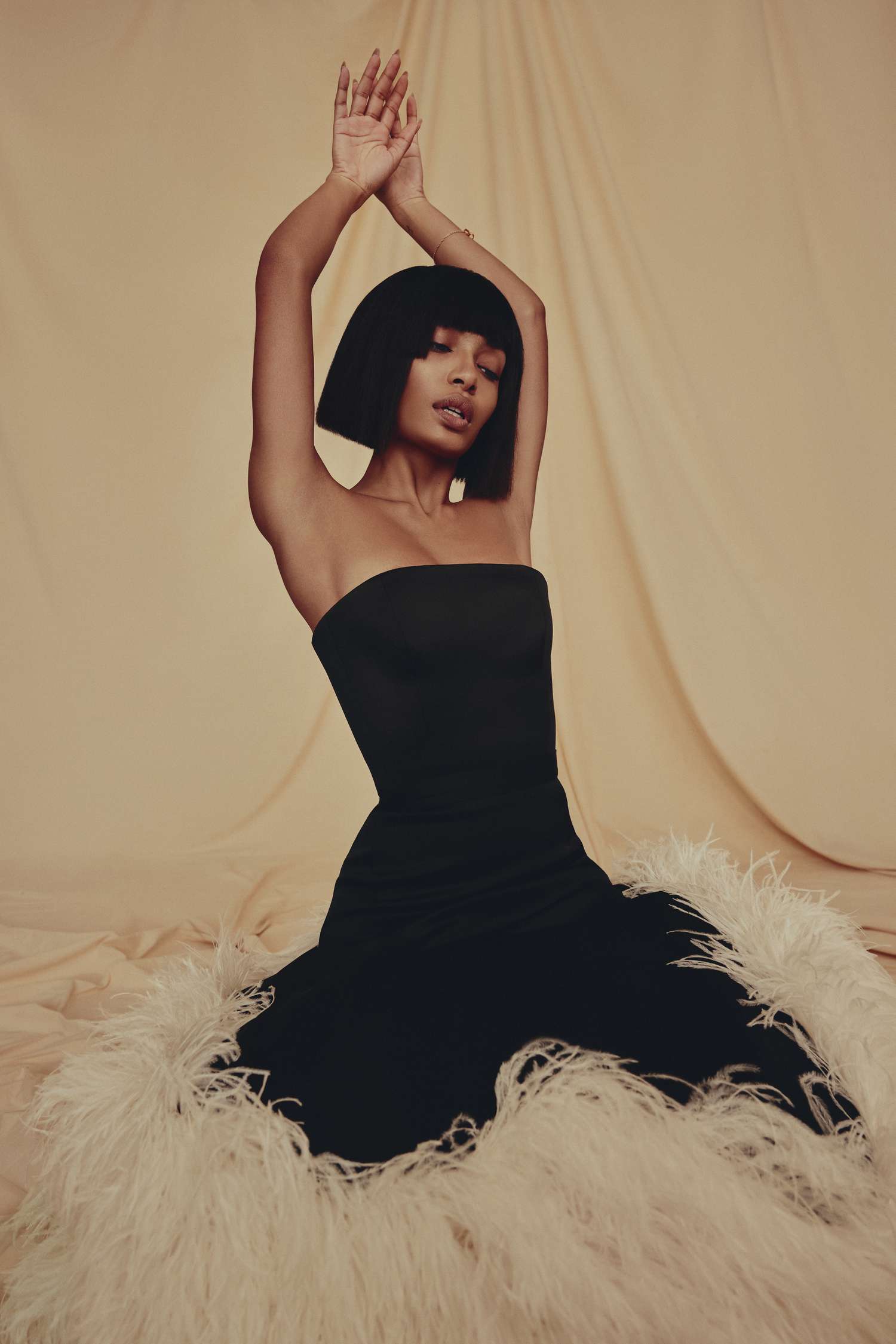
Dress: Atelier Biser
Despite being busier than most grade-schoolers, Shahidi says striking a balance between work and play was easier then. Her parents, Afshin and Keri, wouldn't have it any other way. "One thing my mother has always said is acting is something we do, but it's not who we are," she says. "I've always appreciated that distinction because it's meant I've always had a personal life with hobbies and friends. My acting career was never all-consuming as a kid. Before Black-ish, I was guest-starring on a lot of shows, but I would go to work and then go back to school or attend things like karate class."
Joining the cast of Black-ish admittedly upset Shahidi's work/life equilibrium a bit. In 2014, she landed the role of Zoey Johnson—the eldest child of Andre (Anthony Anderson) and Rainbow Johnson (Tracee Ellis Ross)—on the ABC series. The Kenya Barris–created sitcom followed the upper-middle-class Johnson family as they navigated living in a predominantly white California suburb. Each episode delved deep into their lives and experiences as Black people, tackling issues including police brutality, colorism, and feminism. The show was met with much acclaim throughout its eight seasons, earning over 200 award nominations. Shahidi alone has won a Gracie Allen Award, an NAACP Image Award, and two BET Awards for her portrayal of Zoey.
As one would imagine, becoming a household name as a teen is a complex experience. Shahidi says the external factors—particularly the millions of people flocking to her social channels (she currently has over eight million followers on Instagram) and being approached while out and about—took some getting used to. "When Black-ish started, that was a lot of attention at a young age," she shares. "The good thing about that is people felt like they were our family because they watched us weekly. The bad thing is sometimes certain boundaries do not exist with people in person."
Dress: Ferragamo
Navigating her personal feelings surrounding her newfound global fame proved more challenging. "For a second, I felt like I couldn't mess up," Shahidi says. "I'm such a square that I really couldn't get in trouble if I tried, but I had this weird feeling [that] if I'm out in the world and mess up, that's it."

Her fear is a shared sentiment among many women of color—systemic racism and gender inequities have fostered this damaging notion that we must be perfect to achieve and maintain a seat at the table. Whereas our white counterparts are often given the freedom to "fail fast" or "fail forward", we're made to feel as though we can't afford to, as we'll not only be limiting our future opportunities but potentially those of our community as well. "As Brown and Black women, there's an added layer of the stakes of your mistakes," she notes. "This is especially true if you're the only one in a space. However, we shouldn't have to forego the experience of being able to say, 'If I mess up, I'll still be worthy of this moment, space, and opportunity.'"
Shahidi says it wasn't until Grown-ish—the Black-ish spin-off following Zoey's journey during and after college—premiered in 2018 that she felt more settled. Granted, the show ushered in an even greater level of notoriety to reckon with. "Before the show debuted, I was walking on Fairfax Avenue in L.A., and every poster on that street had just my face on it," she says. "I never dealt with this before with Black-ish. I had to learn how to maneuver [through] this experience. I didn't want to show up mentally fractured [in my personal life] because I was always concerned about all of the new things happening [with work]. So, going to college really helped me learn how to carve out a distinct space for my private life, which allowed me to enjoy my public life."
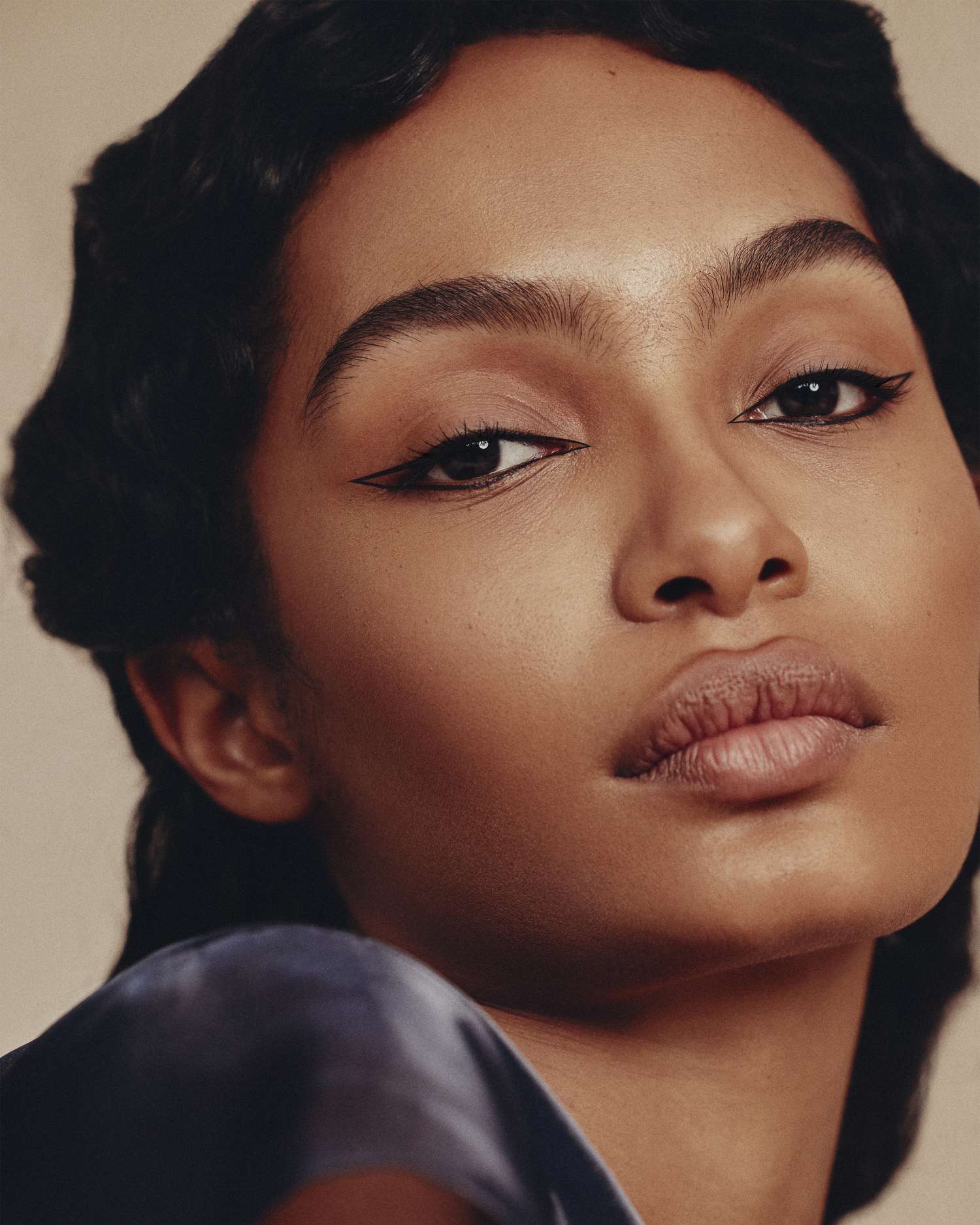
Makeup: Dior Beauty
Shahidi was accepted into Harvard University in 2017—her application was complete with a glowing letter of recommendation from former First Lady Michelle Obama. "I always knew I was going to go to college—that was the one definitive thing in my life," Shahidi says firmly. "But I took a gap year after high school because I graduated at 17, and Grown-ish came to life during that time."
AB+DM
She filmed the show's first season in Los Angeles during her year-long break from school. The immediate success of the series led to the development of subsequent seasons—the fifth just finished airing, and the sixth is in production. Getting to star in and produce a massively successful show is a dream come true for any actress. But it's also the ultimate juggling act when you're acting on set in California and studying in Massachusetts. "When we shot season one, we didn't know if we were going to get a season two or three," Shahidi says. "When we found out season two was going to happen, I started questioning what the right move would be. My high school experience was a real grind. I took accelerated classes and spent every day after work and the weekend trying to get through the material. Coming out of that experience, I knew I wanted a better balance. I didn't want to go into an experience where I couldn't enjoy being in school or shooting this show."
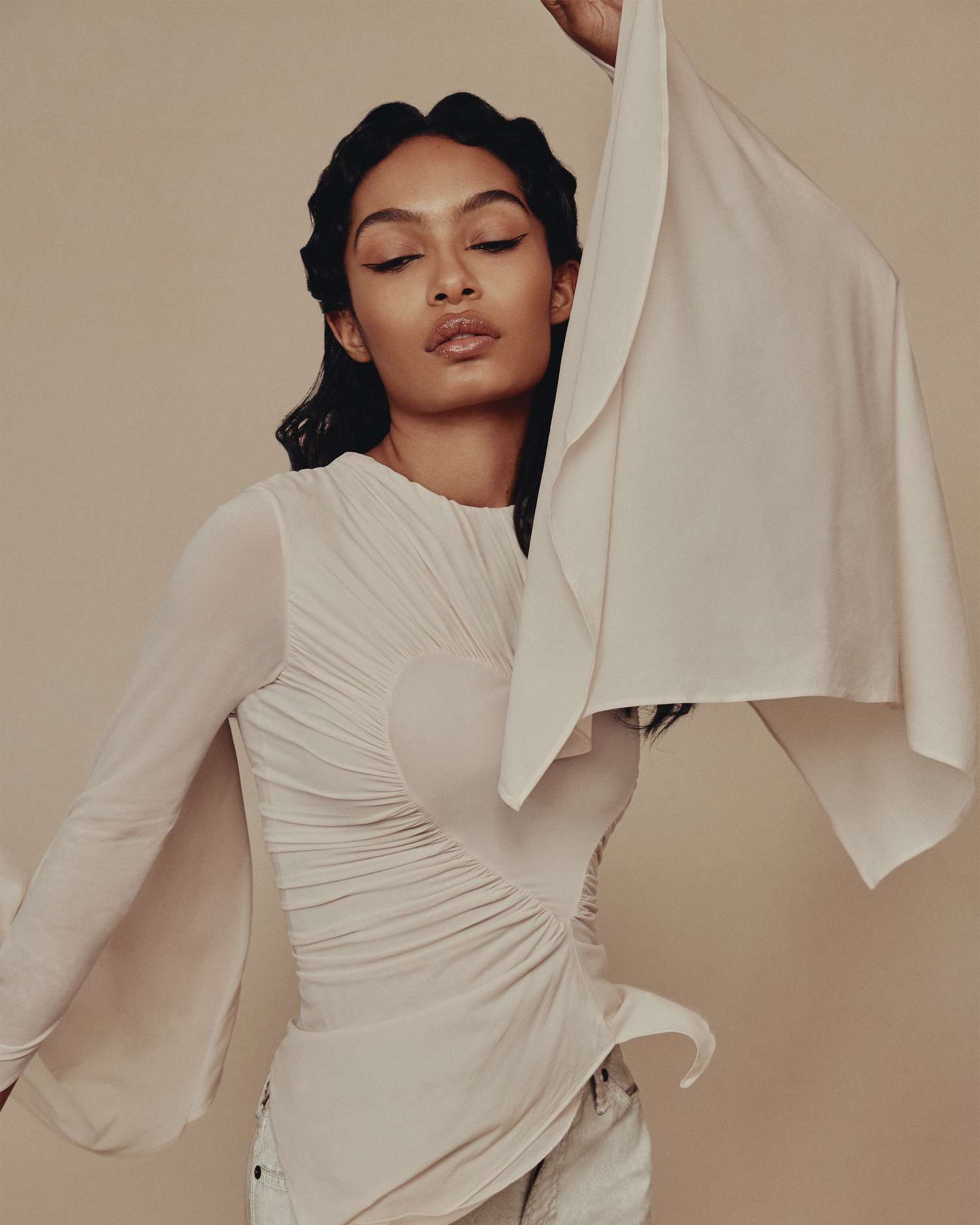
Top and Pants: Acne Studios
To make things work, she ping-ponged from coast to coast each week, carrying a suitcase to class some days so she could catch a flight immediately after. During these four years, Shahidi says her real-life experiences began to reflect on-screen in unexpected ways. "For years, I felt like Zoey was my polar opposite, and we just happened to be the same age," she says. "But, suddenly, we hit this moment in the script where Zoey's in school, balancing work, and flying back and forth. And she was struggling with her feelings about missing important moments in her work and personal world. That brought me to tears because it was so resonant. As thankful as I was to be able to fly to school and work—and as much as I was the one who signed up for both—it was a lot. There was a lot to process in terms of what I was missing even though I was having all these great experiences in exchange."
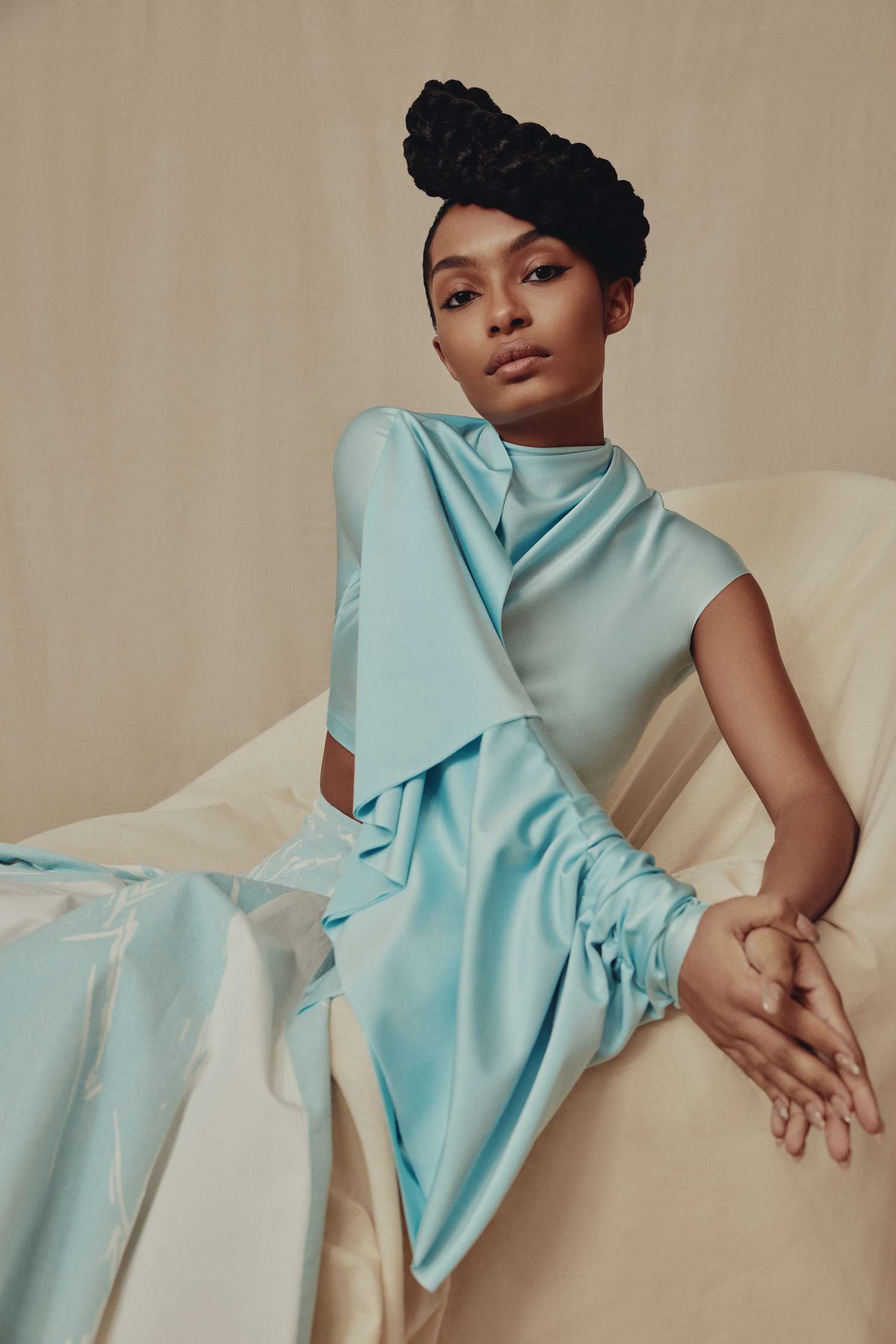
Top and Skirt: Sportmax
Shahidi credits her tight-knit support system for helping her successfully navigate the mental, emotional, and physical demands of Grown-ish and Harvard. "When I switched agencies at 16, I told potential agents, 'I want to go to college. How do you all accommodate that?'" she says. "You'd be surprised how many big agents told me my urge to go to college would go away once I realized how much I'm missing in Hollywood. So I'm thankful for my current agency, CAA; manager; parents; ABC; and Kenya Barris, as they have protected this space for me. It was a real concerted effort on every person's part to make sure I could have this experience. It didn't come easy, but I am grateful it happened the way it did."
Shahidi says attending Harvard was more than worthwhile, as it consisted of a myriad of moments that satiated her thirst for knowledge. She majored in African American studies and sociology—her coursework included classes ranging from race and sociology to healthcare and morality to hip-hop sampling. Shahidi also spent countless hours studying the work of Jamaican novelist and cultural theorist Sylvia Wynter, compiling her research into a 136-page thesis titled, I Am a Man: The Emancipation of Humanness from Western Hegemony Through the Lens of Sylvia Wynter. "I loved learning about all these movements and histories because it has helped me better my work and be more intentional with what I'm doing in entertainment," Shahidi says.
Intentionally using her platform is something Shahidi has strived to do since she entered the industry. Her thoughtfulness is indisputably evident in how she uses her voice to educate others and champion social issues close to her heart. As a teenager, she founded the youth-focused voting organization We Vote Next (formerly Eighteen x 18), delivered speeches about equality and activism, and spoke on panels alongside global leaders like former President Barack Obama. Being vocal about her views comes second nature to Shahidi, as she grew up in a Black and Iranian household that regularly engaged in conversations about the state of the world. However, being labeled an "activist" is something she's wrestled with internally.

"I've always felt having a clear perspective and purpose are the only things that will ground you in this entertainment industry," Shahidi says. "However, 'activist' is a big label to throw on someone at 15 or 16 years old. My family members are educators, and my friends are community organizers, so the term didn't feel true to me." Over the last few years, particularly at the onset of the pandemic, Shahidi felt called to reevaluate how she used her voice to support issues.
"During the pandemic, there was a moment when I was looking at my Instagram, and it looked like a CNN news feed," she says. "I carried this feeling that if I didn't post, people would think I didn't care. I created this precedent where I'd immediately share my innermost thoughts when something tragic would happen. But during the pandemic, Black people were dealing with the impact of COVID-19 and unprecedented heights of violence toward our community, and I wasn't giving myself space to process my emotions. Now, I've clarified my role in the conversation. I want to share the things that are giving me hope and the action steps I'm taking to better the situation. I want to be of service and use my platform to be in lockstep with the people doing the groundwork. I want to have a grounded perspective and something to offer my supporters."
Shahidi applies the same level of conscientiousness to her work on-screen. She's equally ruminative about the roles she takes on and the impact they'll have. Up next, she'll be playing Tinker Bell in the Disney revival of Peter Pan. The live-action film, titled Peter Pan & Wendy, will be released on Disney+ on April 28. While she describes her role as small, her presence in the movie is significant. In recent years, Disney has reimagined some of its classic fairy tales to be more inclusive, placing women of color at the forefront. Case in point: Black and Filipina musician H.E.R. starred as Belle in the 2022 musical version of Beauty and the Beast. And singer Halle Bailey, a Black woman with locs, is playing Ariel in the forthcoming adaptation of The Little Mermaid.
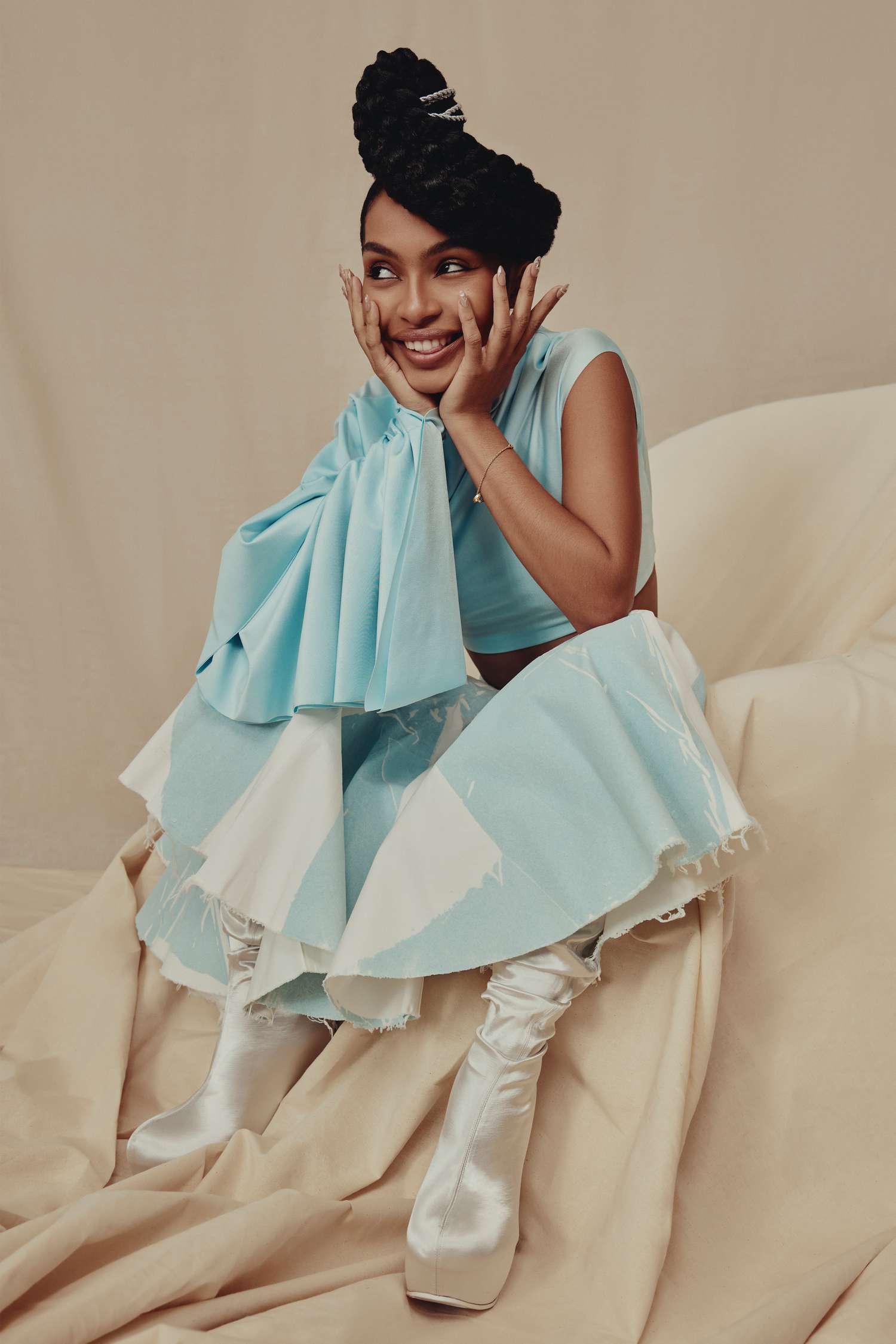
Shoes: Sportmax; Bracelet: Cartier
"I talked to the director, David Lowery, about why he and the higher-ups at Disney wanted to retell this story and I loved his response," Shahidi recounts. "They wanted to bring some new fun to this classic but also give us the fairy tale we deserve. It's evident they're not just popping Black and Brown folks in the cast for the sake of updating the story. Instead, it's about creating a story that so many more people can see themselves in after we've been left out for so long."
In addition to Peter Pan & Wendy, Shahidi is gearing up for the release of two additional projects. She's starring in and executive producing Amazon Studios' Sitting in Bars with Cake—which she loosely identifies as a rom-com based on Audrey Shulman's book of the same name. She also landed a part in Extrapolations, an Apple TV+ drama showing how climate change affects people's everyday lives over a 33-year timespan. At this stage of her career, Shahidi is eager to say "yes" to new types of acting opportunities. "Without school, I have the flexibility to have different experiences," she explains. "I can do a guest role on a show for a day or sign on to a project for a month or two."
With graduation behind her, she also has more room on her plate to engage in storytelling via her company, 7th Sun Productions, a venture she announced in 2020. "ABC offered my mother and me a production deal partially because they saw the work we were already doing without any label," Shahidi says. "I was excited because, as an actor, you're often the last part of the process. In comparison, producing allows us an opportunity to be at the beginning. And when you're at the beginning, you can bring your experiences and values in at the start of a project versus trying to fit them in retroactively."
Through 7th Sun Productions, she and her mother have released Yara Shahidi's Day Off, a Facebook Watch series that follows Shahidi and celebrity guests (ranging from her cousin and award-winning rapper Nas to TikTok star Khaby Lame) as they embark on an activity-filled day and engage in beneath-the-surface conversations. The mother-daughter duo also have other shows in the works—like Greyboy: Finding Blackness in a White World, a drama based on Cole Brown's memoir of the same name that explores his experience growing up Black in white spaces.
"Mommy and I are not only a zodiac match—she's a Leo, and I'm an Aquarius—but we're such similar humans as well," Shahidi says. "We have so much fun together, but [our bond] is also helpful when dealing with difficult moments at work. We know how to affirm each other that we are on the right path and remind each other why we're doing what we're doing."
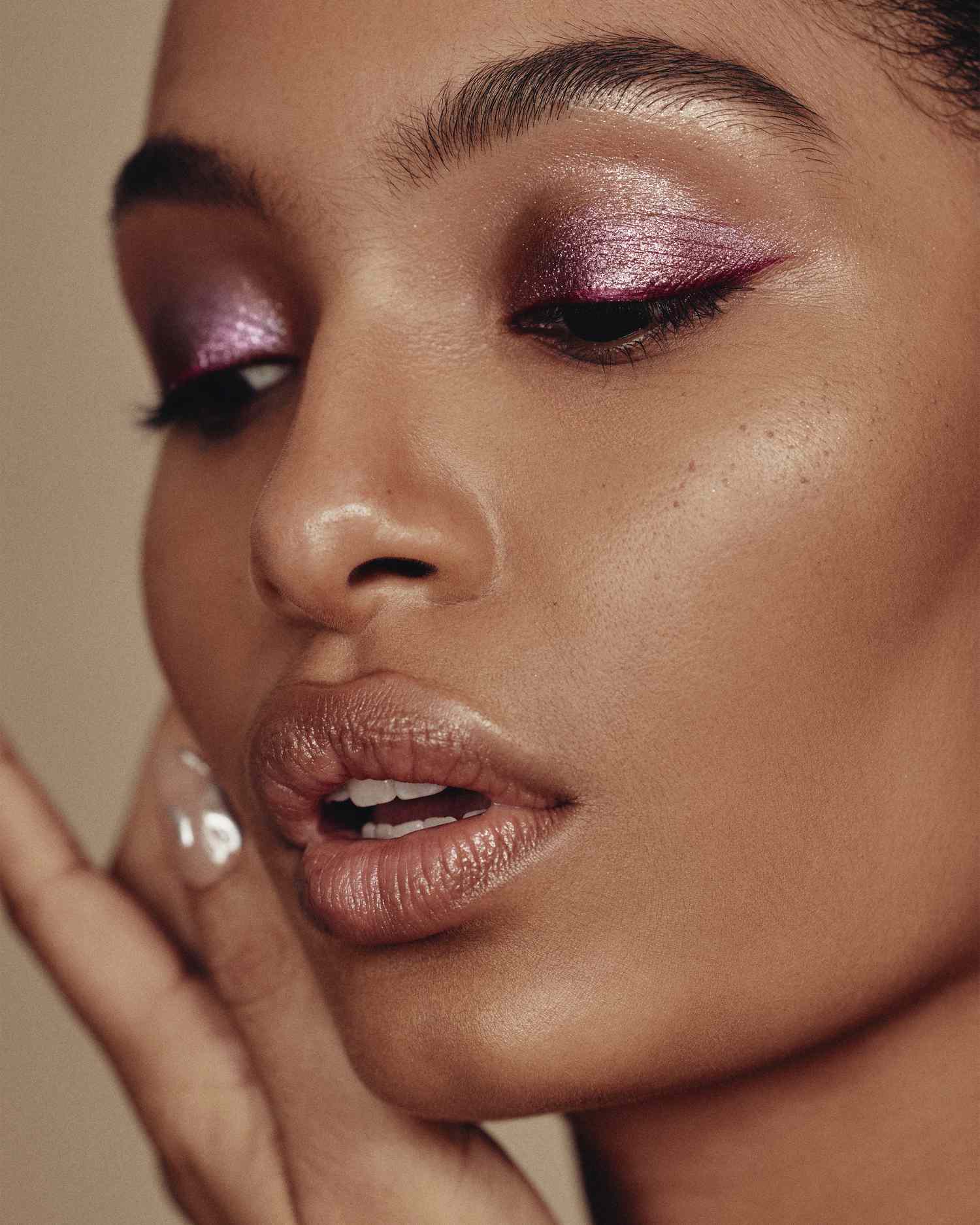
Makeup: Dior Beauty
Outside of her television and film affairs, Shahidi's resume is brimming with meaningful brand partnerships. Most notably, she became a Dior global ambassador in 2021, a fitting alliance considering her status as a Gen Z beauty and fashion icon (who could forget her Josephine Baker–inspired look at the 2021 Met Gala?). When we broach the topic of beauty and fashion, it's clear Shahidi also puts a lot of thought into how she engages with both. "With fashion, I love thinking about purpose," she explains. "I like to use clothing to amplify a message I find important or celebrate someone I admire. With beauty, I'm all about leaning into the fact that I'm in my 20s. I like to have fun with my makeup and hair and do things that will make me smile. I love using big red carpet moments as another way to experiment and figure out if I can get closer to sharing what's authentically me every time I step out."
That last statement is noteworthy, as Shahidi later shares that defining her authentic self has been a central thought lately, especially as it relates to her personal life. "I don't know if I've figured out fully how to spend time with myself," she admits. "I come from a family of five, and I've found myself constantly in an environment surrounded by people. I'm not necessarily an extrovert, but I enjoy the energy I get from being around people. However, that means I sometimes feel like I'm a big question mark when I'm by myself."
For Shahidi, self-discovery has partly entailed leaning deeper into things that spark joy (i.e., going to concerts and spending time with friends). But it has mostly required her to have honest, in-depth conversations with herself about who she wants to be at this moment. "One thing that has helped me is shedding a lot of the characteristics I overvalued about myself," she shares. "For so long, I wasn't someone who went out or someone you had to 'worry' about. I gave myself a curfew, and I would turn down opportunities because they went against this perceived idea of myself that I had in my head. Sometimes, I made those things central to my personality, even though no one asked me to. While my expectations of myself have gotten me this far in life, it's been interesting trying to shake them and have a more nuanced take on what I need to be responsible about—not everything requires the same level of seriousness."
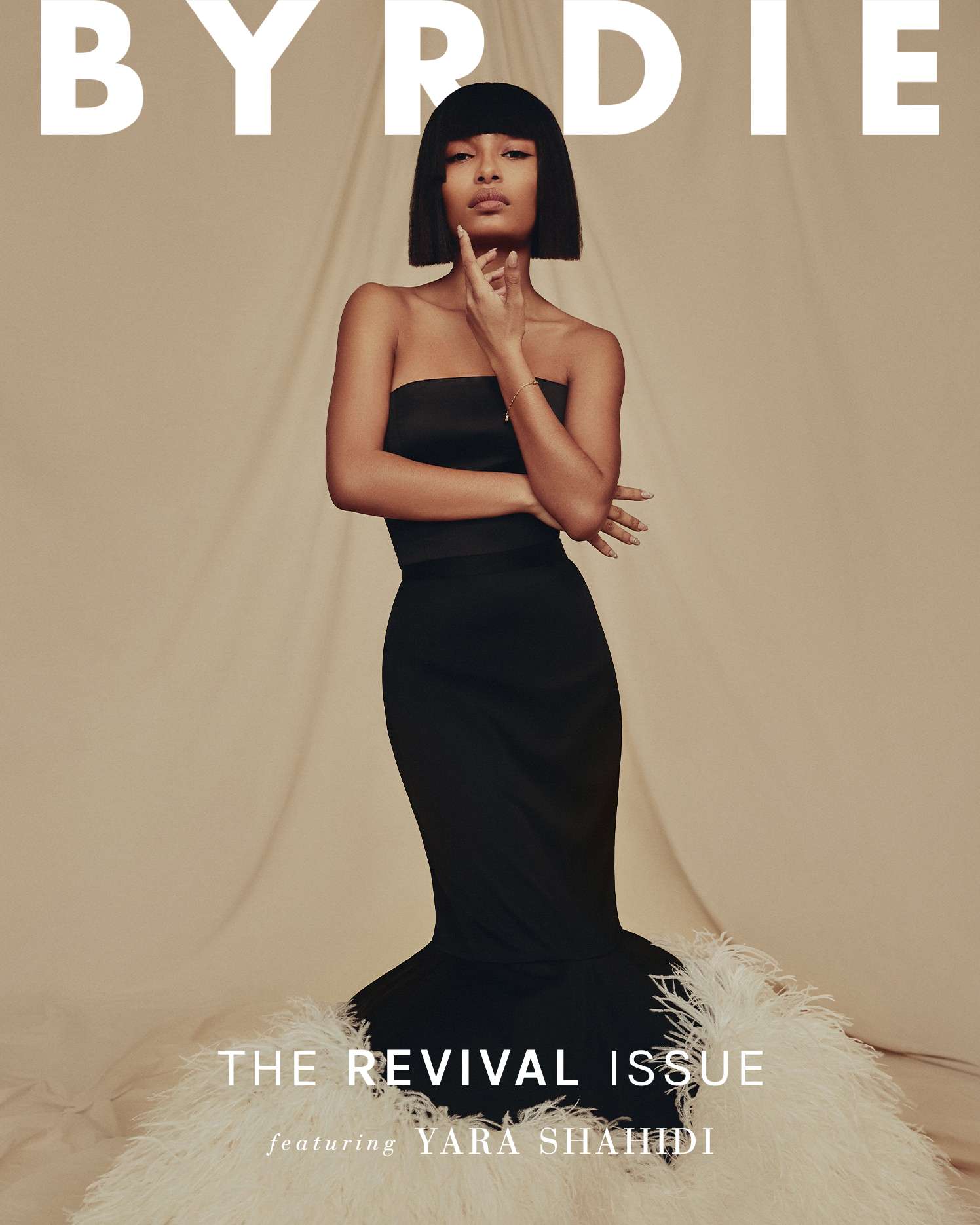
AB+DM
Shahidi's emphasis on cultivating her identity has led her to call this chapter of life her "selfish season". This era is about wholeheartedly honoring her current needs and desires while still opening herself up to evolution and growth. And, as a fellow 23-year-old, I also believe that's what being a 20-something is all about. This decade is a developmental sweet spot that challenges us to expand our perspectives, encourages us to grasp the power of our autonomy as adults, and teaches us that the possibilities for our lives are truly endless.
Shahidi's 20s have been overflowing with abundance thus far. She's grown exponentially as a young woman, seen many of her wildest dreams come to fruition, and earned the highest praise from the most prominent names. Her position as a gifted and revered game changer in Hollywood is already cemented; yet, there's unshakeable certainty that there's much more to come for her as an individual and entertainment visionary. "Even though I've worked for the 23 years I've been alive, by no means have I experienced all of life," she says. "I'm at an exciting phase where I'm coming to terms with just how much more life there is to live."
Talent: Yara Shahidi
Photographer: AB + DM
Beauty Direction: Hallie Gould
Creative Direction: Jenna Brillhart
Makeup Artist: Emily Cheng
Hairstylist: SherriAnn Cole
Manicurist: Tracy Clemens
Stylist: Jason Bolden
Producer: Caroline Santee Hughes
Video: WesFilms
Booking: Talent Connect Group
:max_bytes(150000):strip_icc()/BYR_2023Q1_Yara-LandingPage-RECIRC-c7463bd403da4c1c81089bf8503d2351.jpg)
:max_bytes(150000):strip_icc()/YaraShahidi_01_0149-16fb37d3e6594ed08e3b5abc561b2000.jpg)
:max_bytes(150000):strip_icc()/25173-2-0004_Recirc-3a2851884b664fdca69771158213e7c6.jpg)
:max_bytes(150000):strip_icc()/BYR_DI_CollageLead_EditorsPicks_Recirc-a172b17cfafb4c0fb5eaffeb526f4729.jpg)
:max_bytes(150000):strip_icc()/BYR_DI_CollageLead_Drinking_Recirc-780b34ffb33741ec9301f794ac3bdc1e.jpg)
:max_bytes(150000):strip_icc()/BYR_DI_CollageLead_Thrifting_Recirc-3fc827b14b614298b7e4cfd4c08b1401.jpg)
:max_bytes(150000):strip_icc()/BYR_DI_CollageLead_Laughter_Recirc-abcdd3cd8dd045b996f582435a7b29c7.jpg)
